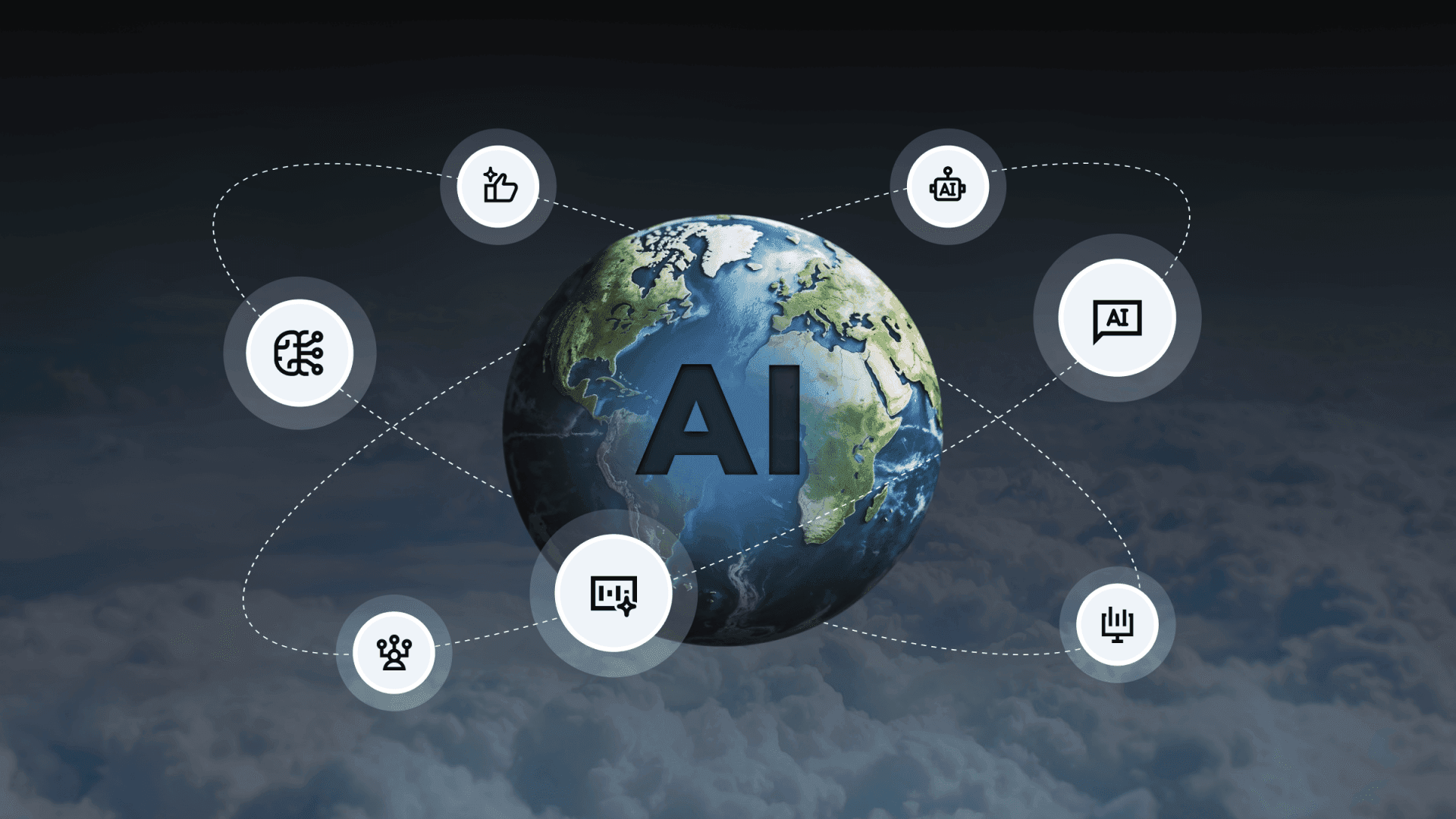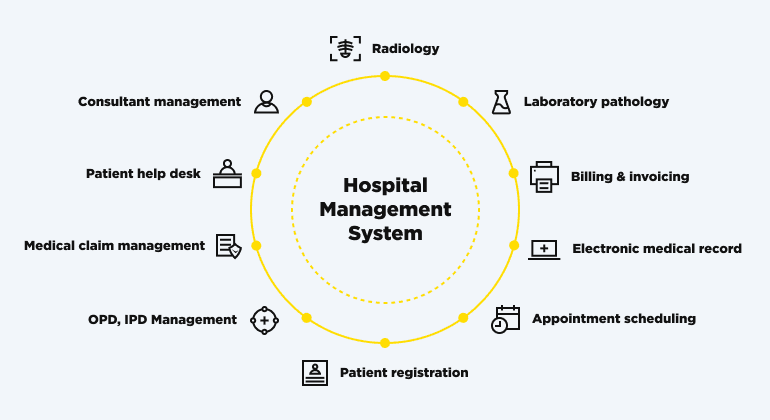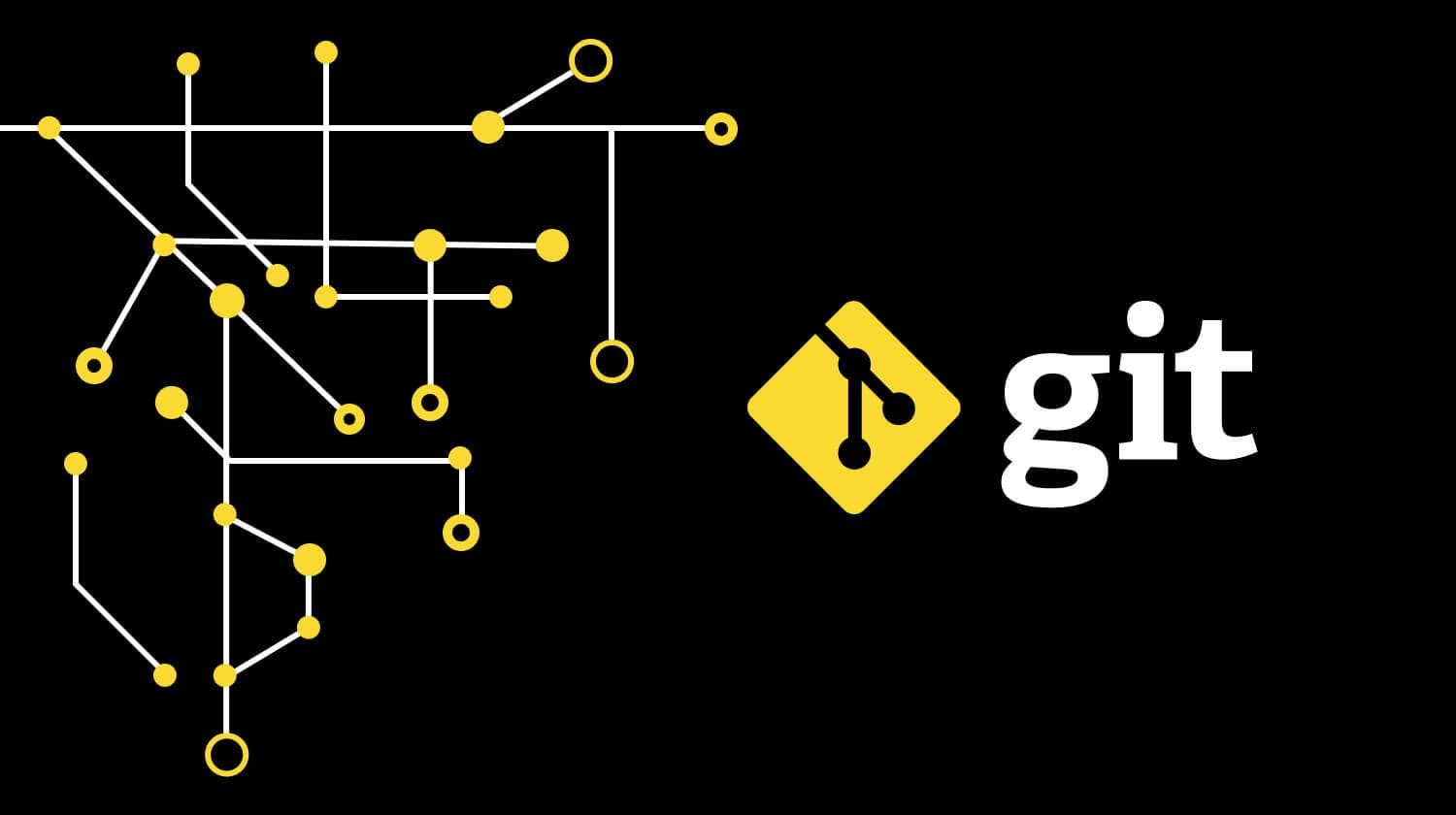As 2025 unfolds, the tech media landscape is flooding with a new buzzword - AI agents.
In 2024, 72% of companies worldwide adopted AI and AI agents, integrating them into at least one business function. In comparison, only 55% of companies integrated AI in 2023.
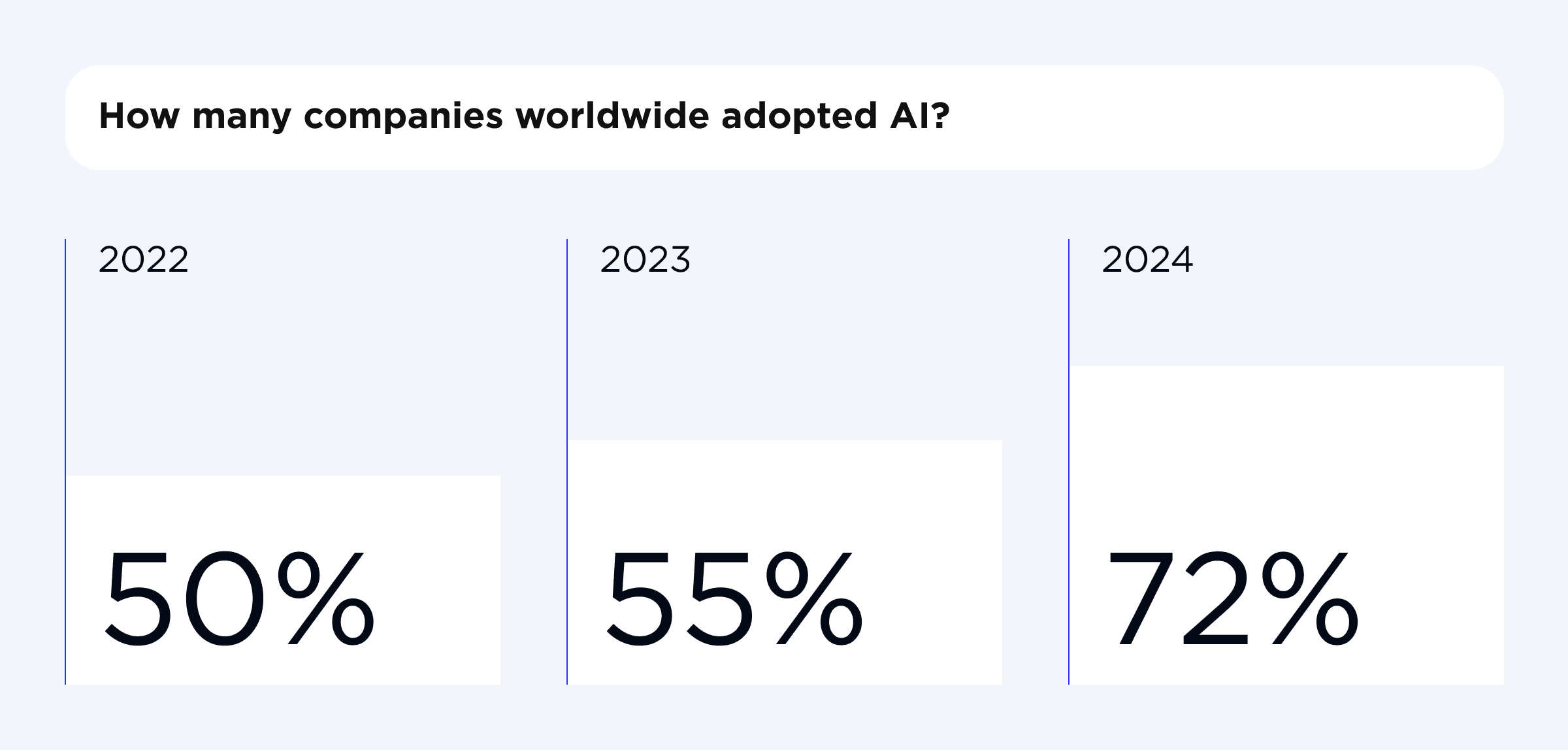
While using artificial intelligence became a stable practice across various industries, the AI agent kicks it up a notch. This powerful tool marks a shift in how we use and think of AI, promising businesses truly transformative benefits.
Putting the tech gurus aside, we focus on a realistic perspective. What applications of AI agents should you expect in the real world, and what challenges might they face? Expectations vs. reality. Let’s go!
Explaining AI Agents
How does an AI agent differ from any other AI-powered tool? It’s an intelligent system designed to operate fully autonomously. AI agents make decisions and take actions based on the data they process - a level up from traditional automation tools that follow pre-programmed instructions.
To put it in simple words, an AI agent is an entity that can:
- Exist in the environment;
- Perceives and observes it;
- Take action to alter it.
Referred environments could be our actual physical world or any digital space, such as a database, internet, enterprise software, or even a personal computer. Therefore, the AI agent showcases more potential than a high-quality tool. You can perceive it as an extra employee who works completely in the digital realm.
The core of AI agents are machine learning models and large language models (LLMs) that enable them to:
- Process real-time data to make informed decisions;
- Adjust their strategy and approach based on outcomes and learned behavior;
- Collaborate with other AI integrations to boost the efficiency of an operational workflow.
Architecturally speaking, there are two main approaches to building AI agents: monolithic and multi-agent systems. Monolithic refers to single, individual agents that handle everything based on their full knowledge of context. Taking advantage of large-scale AI capabilities minimizes the risk of information loss from dividing complex tasks.
A multi-agent system doesn’t rely on a centralized large model. It divides tasks among specialized agents, assigning them specific functions. This approach improves the flexibility and efficiency of complex workflows.
AI Takeover: Why do AI Agents matter in 2025?
The rise of AI marked a new era for business and people overall. At this point,
AI agents are becoming a central part of everyday life. You can have a personal assistant that organizes and independently manages your schedule to apps that automate complex tasks. Even well-beloved AI assistants, like Amazon’s Alexa, are rumored to be transformed into AI agents to take a more proactive role in your household.
The trend of adopting AI-powered tools has emerged not long ago. Yet, a recent PagerDuty study found that 98% of Fortune 1000 companies are experimenting with generative AI. We cannot deny the tight grip AI has on business leaders and common folk alike.
In some sectors, the use of AI agents has become more vital, such as in customer service. Working with vast datasets, handling high-traffic inquiries, and providing 24/7 support, AI agents can be a magic solution for businesses to improve customer satisfaction rates.
Besides, tools like ChatGPT or Gemini are integrated into businesses, helping with financial planning, content creation, and management strategies.
Opting for AI Agents VS. Sticking to Traditional Automation Tools?
Robotic Process Automation (RPA) focuses on streamlining repetitive tasks with programmed guidelines. In contrast, modern AI-powered agents offer flexibility and intelligence, allowing them to adapt and change the environment. Which one works better for you? Let’s compare the new and traditional approaches!

Traditional automation tools and RPA have their place in the business landscape and are highly efficient for specific tasks. AI agents are better suited for a dynamic and fast-evolving environment, offering companies a unique take on business process optimization.
Hype VS. Reality: A Critical Analysis
AI agents are projected to become the backbone of business operations. But the question “Is it too good to be true?” seems to linger in the tech community. No technology is absolutely perfect, so let’s dive deep and set realistic expectations of what AI agents can offer.
Projected Benefits and Advantages
AI agents' big promise is to transform productivity and decision-making within an enterprise. Businesses can count on them to handle repetitive tasks, offer real-time insights, and make autonomous decisions. The potential benefits are tremendous, as it can drive efficiency across sectors like finance, customer service, and coding. AI agents free up time for people to focus on creative pursuits and redefine business strategies.
Naturally, such advantages spike the interest. A recent survey of 1000 AI developers revealed that 99% of them are exploring the development of AI Agents.
Yet, it’s best to be clear that AI-driven agents heavily rely on tech innovation and organizational readiness. Despite exciting benefits, it’s essential to keep expectations grounded.

Contact us to choose the right AI solution
GET STARTEDAI Agents in Real Life: Challenges and Limitations
Let’s face reality - AI agents have some growing pains. The potential IS real, but the technology has to be polished over and over again. At this stage, some might find AI agents too expensive, unreliable, or slow. Why is that?
Reliability issues
In practice, LLM technology in the core of AI agents is prone to inconsistencies, especially when you need an exact output. Some AI chatbots still have issues interpreting human input, creating only frustration and negatively affecting user experience.
Legal side of the question
The key selling point for AI agents is autonomous decision-making. Yet, the companies are liable for any mistakes the agents make. Legal concerns are a valid reason that blocks businesses from adopting AI-powered agents to avoid a blow to their reputation.
Performance and costs concerns
Some companies lack the necessary infrastructure to adopt AI agents fully. Inadequate training and resources may hold back these tools from living up to the expected ROI.
Even well-established GPT-4.0 and Gemini-2.0 still get backlash for working too slowly or being overpriced, regardless of working quite well from a tech perspective.
Gaining user trust
AI technology has been embedded in our lives for a couple of years. And we have collectively learned that AI can make mistakes and mislead the user. Such history makes it hard for users to rely on AI agents' intelligence and autonomous decision-making fully. Gaining this trust for sensitive tasks involving personal information might be quite challenging.
As with any new-emerging technology, AI agents have their limitations and challenges. Accelerated adoption of these tools could backfire if done wrong. However, the tech community is on the verge of a breakthrough to ensure the AI agent model is polished, reliable, and effective. This is why professional AI agent development is essential, ensuring that agents are reliable, trustworthy, and capable of handling complex and sensitive tasks.
Common Misconceptions VS. Success Cases
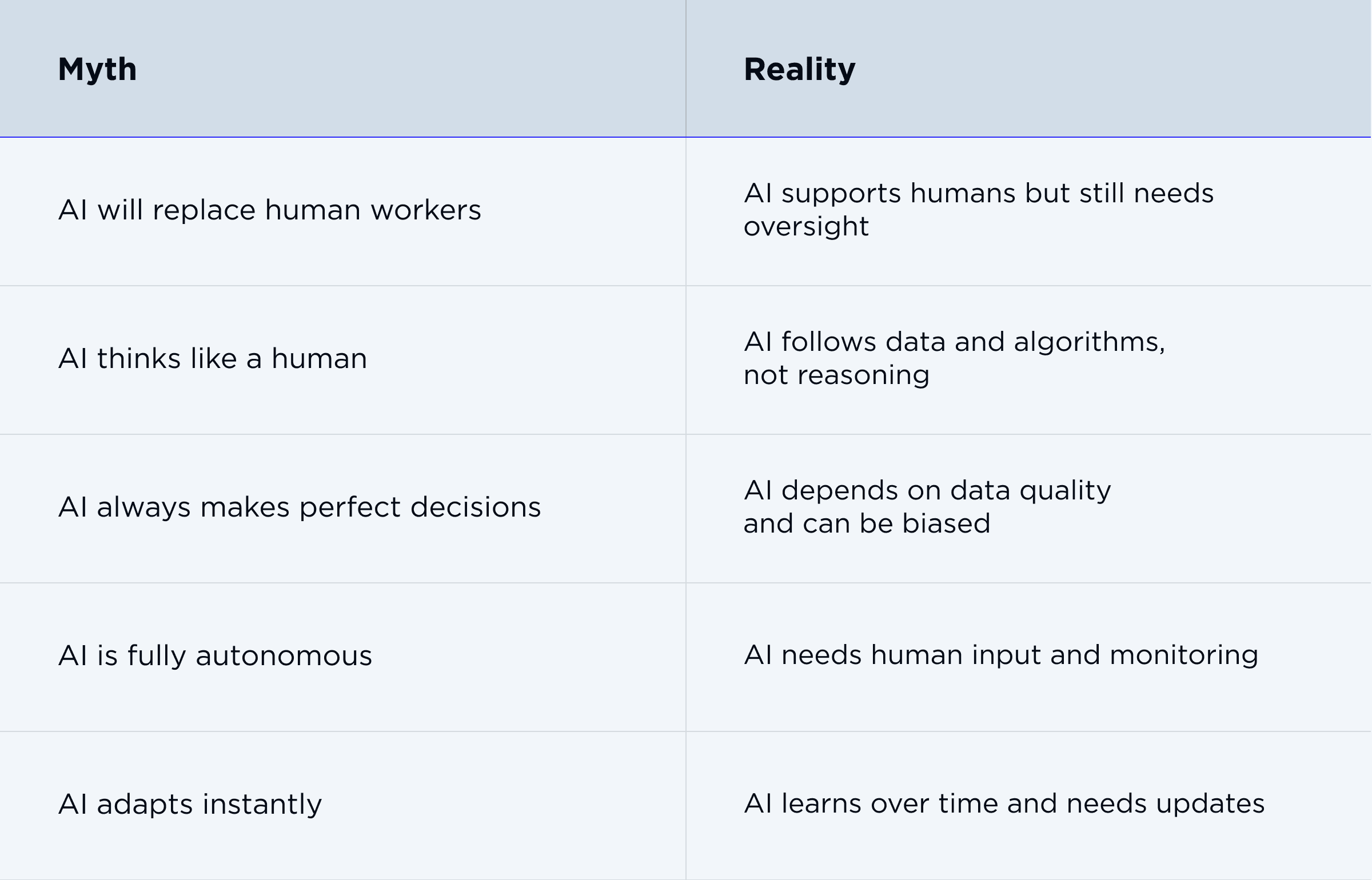
The misleading idea spreading in the tech community is that AI-powered agents are fully autonomous and independent. True, it’s a level up from the RPA tool. However, agents require human oversight and guidance for better performance. They’re still limited but have a specific scope of work. Successfully integrating agents calls for experimentation to find that sweet scope - the section neither too broad nor too narrow.
You might ask, are there success cases amid the challenges and limitations? AI agents became a buzzword overnight. Successful integrations demonstrate tangible benefits, like cost savings, improved employee satisfaction, and enhanced customer experience. In particular, AI agents successfully operate in sectors like customer service and financial planning as an analysis tool.
Another great success is the adoption of agents in coding, allowing developers to speed up project timelines while minimizing errors.
Without a doubt, AI agents leverage transformative capabilities. Yet the gap between the hype and reality is still wide. Do we believe that developers are capable of bridging the gap? Absolutely! Success stories and promising trajectory shows us that business leaders should stay enthusiastic. It’s still worth the risk to introduce agents in your business process if you’re staying vigilant.
How are AI agents integrated into real-world innovations?
Finally, let’s look at how AI agents have transitioned from the concept to a real-life business application across various industries. In Healthcare, agents create treatment plans, manage patient records, and assist with diagnoses. E-commerce platforms use these tools to recommend products and predict customer needs. In transportation, AI-powered agents optimize delivery routes. The finance sector uses agents to detect fraudulent activity and analyze market trends.
While many implementations are still experimental, businesses are beginning to see real results with AI assistant solutions that combine intelligence, automation, and contextual understanding across multiple use cases.
Here are some names to look out for as we expect them to push the limits:
- General AI Agents: Runner H, BrowserBase, Adept.ai, MultiON.
- Tech Giants Efforts: Google DeepMind’s Project Mariner, Microsoft Copilot Studio, Open AI’s Mac App, Clsude Computer Use.
- Vertaic AI agents with a focus on specific domains, like programming, legal work, and customer service.
Looking Ahead: What does the future look like for AI Agents?
Are AI agents overhyped? At the moment - yes. But let’s not write them out just yet. We’re seeing promising performance metrics and great efforts from the worldwide tech giants. Maybe fully Autonomous Agents' slash sidekicks are not up for sale today, but the future still looks bright.
The realistic path forward is to focus on refining the technology so that AI agents can bring undeniable value:
- Agents are not replacements, but more of an extra efficient copilot. We’ll see AI enhancing existing tools without taking humans fully out of the loop.
- To solve reliability limitations it’s crucial to narrow the scope of work for the agent, creating smarter borders for the AI.
What development can we expect in the near future?
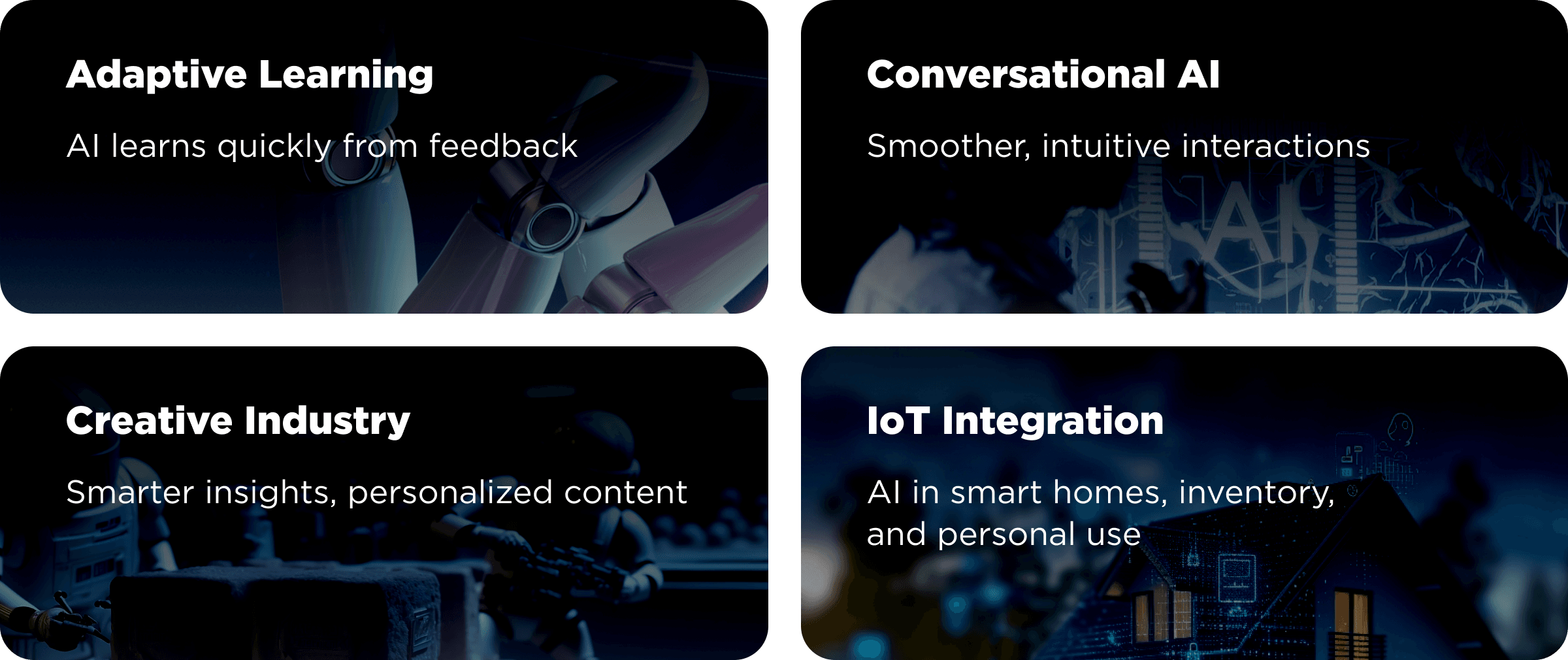
- Adaptive learning models - AI learning from its own behavior and feedback to boost user satisfaction. No more repeating the same mistake in a loop.
- Conversational AI that doesn’t frustrate you - smoother, more intuitive, and helpful AI interactions in sales, support, and customer service.
- Improvement in the creative industry - Better quality, enhanced performance, smarter insights, and excellent personalization to offer creatives elevated content generation or marketing strategy.
- IoT integration - AI agents are not exclusively for complex dataset analysis in business. We will see integration in smart home management, inventory tracking, and personal use adaptation.
Final thoughts
Do the AI agents deserve the hype surrounding them? Yes. But at this moment, we’re in the middle ground of enthusiasm and vigilance. AI agents offer impressive advantages, setting expectations high. Such applications for enterprises can directly influence profits, sales, and employee productivity.
However, the dream of a fully independent AI assistant handling all your business for you is not happening tomorrow. For some, AI-driven benefits might be overruled by ethical biases of AI-powered decision-making or dependence on complex databases. We see that tech developers are eager to surprise the world with refined technology and more progressive solutions. Remember, just 5 years ago, businesses were cautious of AI implementation.
We see the future as a partnership between AI agents and humans. The end goal is to empower your business not to replace humans for good. If that’s your vision as well, then embrace those hyped agents now. AI-powered agents will evolve into a powerhouse that enhances how we work, create, and interact.
Ready to automate, transform, and scale with AI Agents? Let’s talk!
Are you brave enough to be one of the pioneers who will harvest the power of AI agents? It’s time to level up and trust artificial intelligence. Start small - explore AI development solutions to find the tool that fits your business needs. Whether you’re looking to analyze databases, automate customer support, or generate marketing content, there is an agent you can trust.
We can be the bridge between hype and reality! Our expertise in AI assistant development allows us to build smarter, reliable AI-driven solutions to drive real value. Let’s create AI that actually works!
